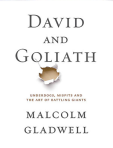
Imposter Syndrome is said to be more prevalent in families that value success above all else
Have you ever looked around the room, maybe in the exam and everyone is writing or typing incredibly fast, answering every question perfectly, and it looks so easy. For you however, its hard work, you’re not sure if your answers are correct, in fact they are probably wrong. True you did score really well on your last test, and were one of the top three students, but you know for a fact that was more luck than ability.
Imposter syndrome
If when you are reading this, it sounds familiar then it’s possible you have something called Imposter Syndrome. But dont worry you’re not alone, a YouGov survey in 2022 found that around half of Britons identify with at least two out of five impostor syndrome characteristics. These include, thinking your peers are more intelligent, finding it difficult accepting compliments and praise and having high expectations of yourself. Now on their own some of these would be considered qualities, and are in fact desirable, but when combined with the others, it tells a slightly different story.
“You think, ‘Why would anyone want to see me again in a movie? And I don’t know how to act anyway, so why am I doing this? ” Meryl Streep. Often described as the best actress of her generation. She has 3 Academy Awards and 21 nominations, as well as 8 Golden Globe awards and 32 nominations.
The term Imposter Syndrome (Impostor Phenomenon) first appeared in a 1978 research paper by psychologists Pauline Rose Clance and Suzanne Imes. Their work looked at high achieving women who despite outstanding academic and professional accomplishments still had self-doubts in terms of their ability.
Although some believe that gender is not an issue, there is evidence showing that women tend to suffer from Imposter Syndrome more than men, but fear not it’s not a big difference and there is something arguably far worse – the Dunning Krugar effect. The opposite of Imposter Syndrome. Dunning Krugar is a cognitive bias where individuals with low ability in a particular domain tend to overestimate their ability, and men seem to have the advantage with this one.
Clance and Imes identified three critical attributes:
- Thinking that people have an exaggerated view of your abilities
- The fear of being exposed as a fraud
- The continuous tendency to downplay your achievements
But what causes it? – Firstly, it’s important to say that although it’s referred to as a syndrome, there is no official diagnosis listed in the physiologist Diagnostic and Statistical Manual, Clance and Imes simply stated that it was merely a common set of feelings experienced by high achieving women. In addition, it’s not binary, think of it more as on a scale, rather than having it or not. It can also be more prevalent in certain domains than others, for example you may be different at work than at home. As to its cause, its most likely the result of multiple factors, including personality traits (see below) and family background, for example some believe it to be more prevalent in families that value achievement above all else, have you seen Succession?
The Five Types of Impostor Syndrome
In the years that followed several other research papers were produced, which inspired a book written in 2011, by Dr. Valerie Young “The Secret Thoughts of Successful Women”. In the book she identified five types of imposter. These could easily be the profiles of students; can you spot yourself?
- The Perfectionist – sets unrealistically high standards for themselves, maybe passing your exams faster than anyone else, they also believe that anything less than perfection is failure. Perfectionists often focus on minor mistakes and feel like frauds when they don’t meet their own high expectations. Over prepare and afraid to fail.
- The Expert – believes they must know everything before considering themselves competent. They constantly seek more knowledge and fear being exposed for not knowing something. Never satisfied they know enough.
- The Natural Genius – tend to measure their worth by how easily and quickly they grasp new concepts or skills. They become discouraged when faced with challenges that require effort, as they fear it’s a sign of inadequacy and lack of intelligence. Ashamed of struggling.
- The Soloist – believe they must accomplish tasks on their own without seeking help, and they view asking as a sign of weakness. They feel they should learn everything independently, leading to isolation and reluctance to collaborate. Rejects help, works alone.
- The Superwoman/Superman – feel they need to excel in all areas of life, in the classroom, at work, home, and personal relationships. They juggle multiple roles but often feel overwhelmed by the pressure to meet all these expectations, leading to self-doubt. Workaholic can burn out.
These types are not rigid categories, and it’s possible to exhibit a mix of different ones. One important step towards addressing imposter syndrome is firstly to acknowledge that you might have some of these.
“I still have a little impostor syndrome… It doesn’t go away, that feeling that you shouldn’t take me that seriously. What do I know? I share that with you because we all have doubts in our abilities, about our power and what that power is.” Michelle Obama, graduate of Princeton University and Harvard Law School. Former first lady of the USA, 2009 to 2017.
How to overcome imposter syndrome?
Imposter syndrome is experienced by many people and in different ways, for some it’s a minor concern, for others however in can be a significant challenge. For example, in terms of learning it can take the fun out of studying and its hardly motivational, thinking that it’s just a matter of time before you fail something and are found out. These feelings of self-doubt can also stir up a lot of fear, anxiety and stress which in turn can lead to ineffective study, poor performance and a feeling that you should just give up. The good news is it can be managed and the feelings changed. Below are some ways to do this.
- Self-Awareness – The first step is to recognise and acknowledge your imposter feelings. Appreciating that they are relatively common and not necessarily reflective of your competence.
- Positive self-talk – Listen to what you’re saying to yourself and if its negative, replace it with more realistic and positive statements about your abilities and accomplishments.
- Celebrate achievements – Think back to a time when you achieved something, acknowledge your successes and give yourself credit for your accomplishments. It might be worth actually writing them down and putting them on your wall.
- Talk about it – Often, sharing your feelings with others can help, its partly about externalising how you feel but you might find they have similar concerns, reducing the feeling of isolation.
- Set realistic goals – Break down your goals into smaller, achievable steps. This can help you build confidence as you make progress.
- Embrace learning – Learning is a continuous process in gaining new skills and knowledge, it will not result in perfection, just progress.
- Visualise Success – Imagine yourself succeeding in challenging situations, coming out of the exam room and feeling confident or getting your exam results, and it’s a pass.
Remember that overcoming imposter syndrome is a gradual process and might involve trying various strategies to find what works best for you. With determination, self-reflection, and support, you can effectively manage and diminish the impact Imposter Syndrome can have.
We will leave the last word to this guy……
“I just look at all these people, and I think, what the heck am I doing here? They’ve made amazing things. I just went where I was sent.” Neil Armstrong the first man on the moon!


 The self-help and business section of any good bookshop will offer a wealth of advice as to how you can improve your confidence, the narrative will suggest that confidence will lead to success not only in your career but in life.
The self-help and business section of any good bookshop will offer a wealth of advice as to how you can improve your confidence, the narrative will suggest that confidence will lead to success not only in your career but in life.











 August is an interesting month, for some it is the time to take a well earned holiday and so de-stress for others it is the month in which the exam results drop through the letter box or inbox and so a time to get stressed.
August is an interesting month, for some it is the time to take a well earned holiday and so de-stress for others it is the month in which the exam results drop through the letter box or inbox and so a time to get stressed.